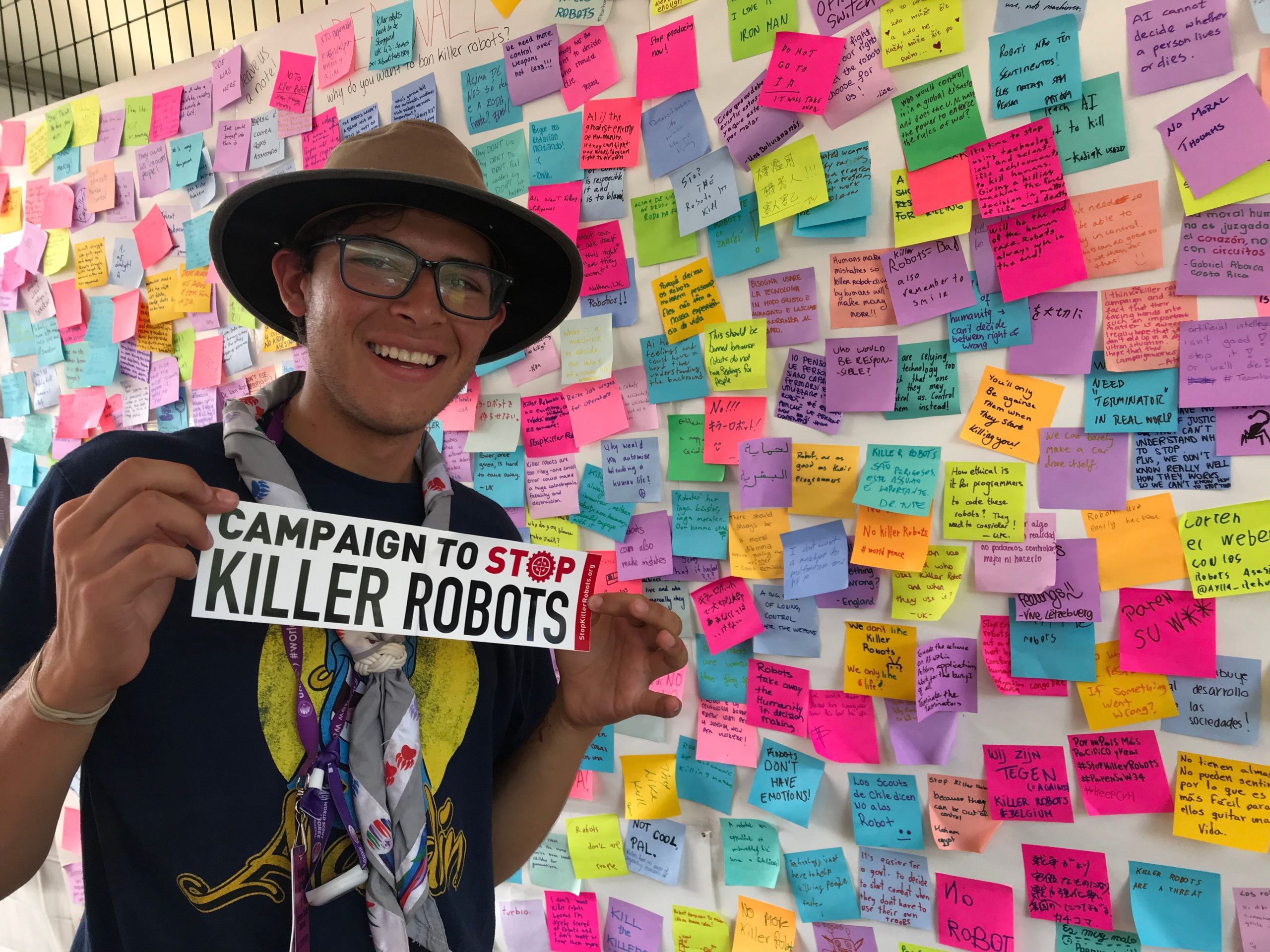Ypres Peace Prize

The Campaign to Stop Killer Robots has won the Ypres Peace Prize, awarded by the Belgian city every three years since 2002. The prize will be presented on Armistice Day–11 November 2020–which marks 101 years since the end of World War I.
The Mayor of Ypres, Emmily Talpe, announced the 2020 award at a City Council meeting on 6 June. The Campaign is grateful for this important recognition from a city that has directly experienced armed conflict, including the use of chemical weapons and landmines. The prize gives a clear signal to Belgium authorities that public concerns over killer robots are growing and demands for regulation must be realized.
The Campaign urges Belgium and other nations to launch negotiations now on a new international treaty to ban fully autonomous weapons and retain meaningful human control over the use of force.
In 2018, Belgium’s national parliament adopted a resolution urging the government to work for a new international treaty prohibiting fully autonomous weapons, but it is not one of the 30 countries calling for a new treaty. A public opinion poll conducted eight months ago found that 71 percent of Belgians believe that their government should work for an international ban on fully autonomous weapons.
The Campaign is grateful to the children of Ypres and and the surrounding region who voted for the prize after spending the past school year studying the five shortlisted nominees. As Campaign co-founder WILPF has noted, the prize “is a clear message from the next generation, and gives us all hope.”
According to the nomination letter, the prize aims to provide moral and financial support (€25,000) to organizations and individuals working for peace.
The Campaign is honored to have been nominated together with Rebecca Johnson of the Acronym Institute, Borderline Sicily, Mukhtar Mai from Pakistan, and Women’s Solidarity Network in Yemen.
Previously, the Ypres Peace Prize was awarded to War Child (2002), anti-death penalty advocate Helen Prejean (2005), Afghanistan human rights defender Simar Simar (2008), Doctor Denis Mukegwe of DR Congo, Pakistani activist for girls’ education Malala Yousafzai (2014), and Syria Civil Defence aka the White Helmets (2017).
For more information, see:
- Ypres Peace Prize announcement and nomination for the Campaign
- Responses from the Campaign to Stop Killer Robots, Human Rights Watch, Pax Christi Vlaanderen


